Idea by
Cyrus Peñarroyo, McLain Clutter, Salvador Lindquist, Reed Miller, Craig Zehr
EXTENTS
Call for ideas 2020
Online/On-site
Online/On-site
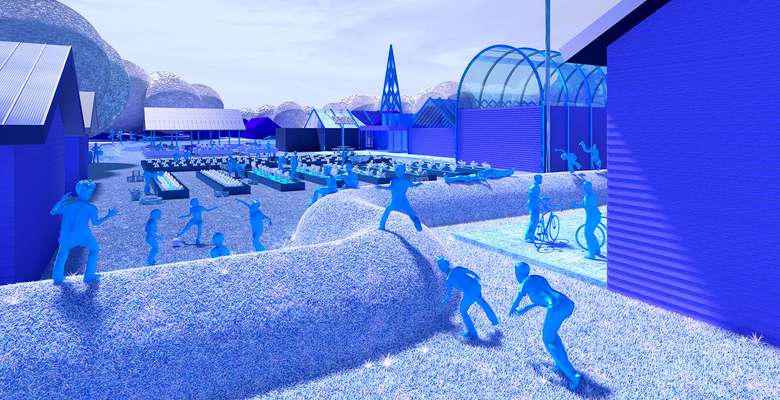
- Systemic changes
If cities of the future will increasingly be shaped by networked technologies, this mapping-based research and design project – set in Detroit, MI – explores how inequitable access to the Internet could yield alternate patterns of urban development. Detroit has the lowest rate of Internet connectivity in the United States, excluding thousands of people (especially school-aged youths) from the opportunities for education, employment, and belonging afforded to those with the ability to get online. Online/On-site combines publicly available spatial data with information gathered from interviews of local high school students in order to map detailed geographies of digital access and exclusion across Detroit. The project identifies latent opportunities to reimagine the city’s disinvested neighborhoods in ways that enable public assembly and digital interaction, proposing urban design scenarios that are rich with innovative ways to connect physically and virtually.
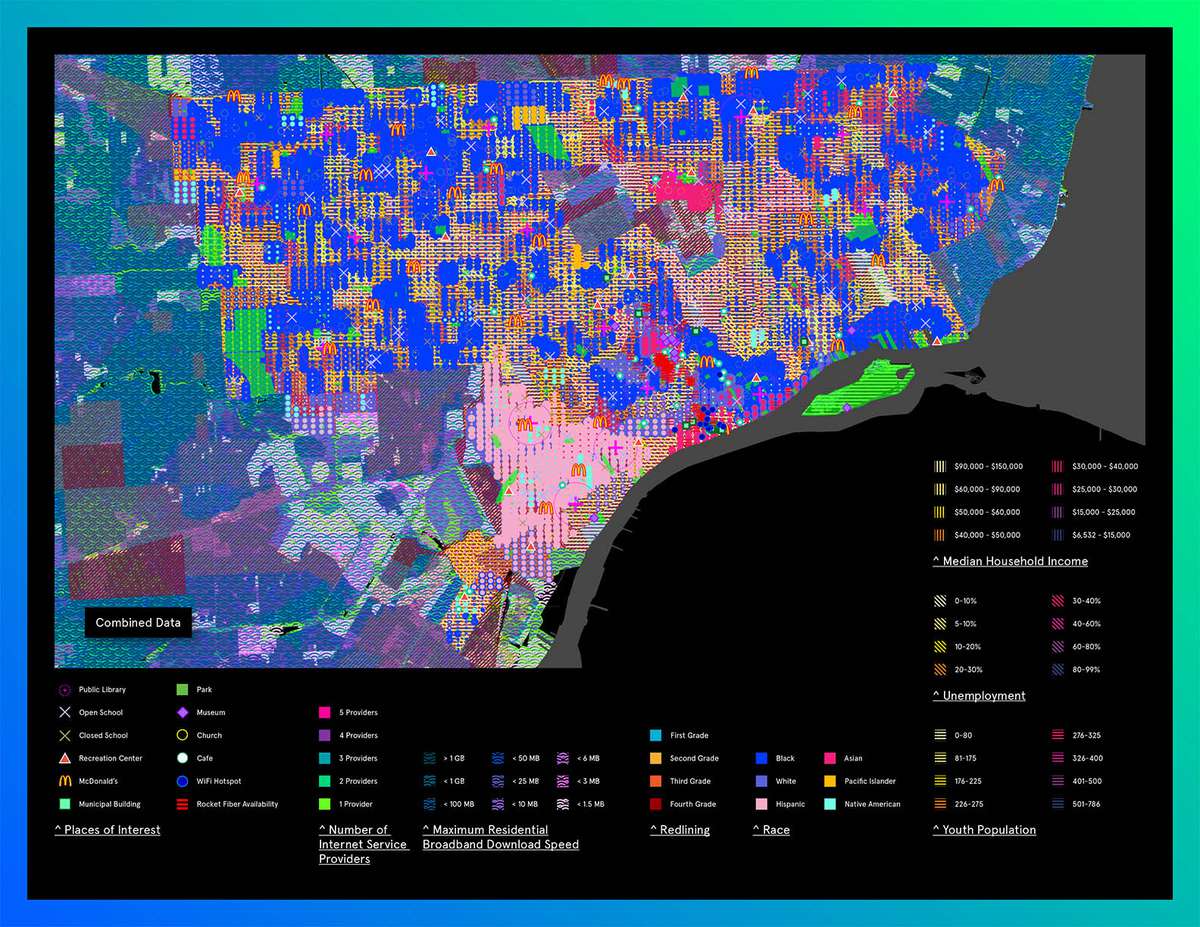
Composite map showing local resources, internet connectivity, and demographic data that could influence access to digital technology. From this research, three sites were chosen for design speculation.
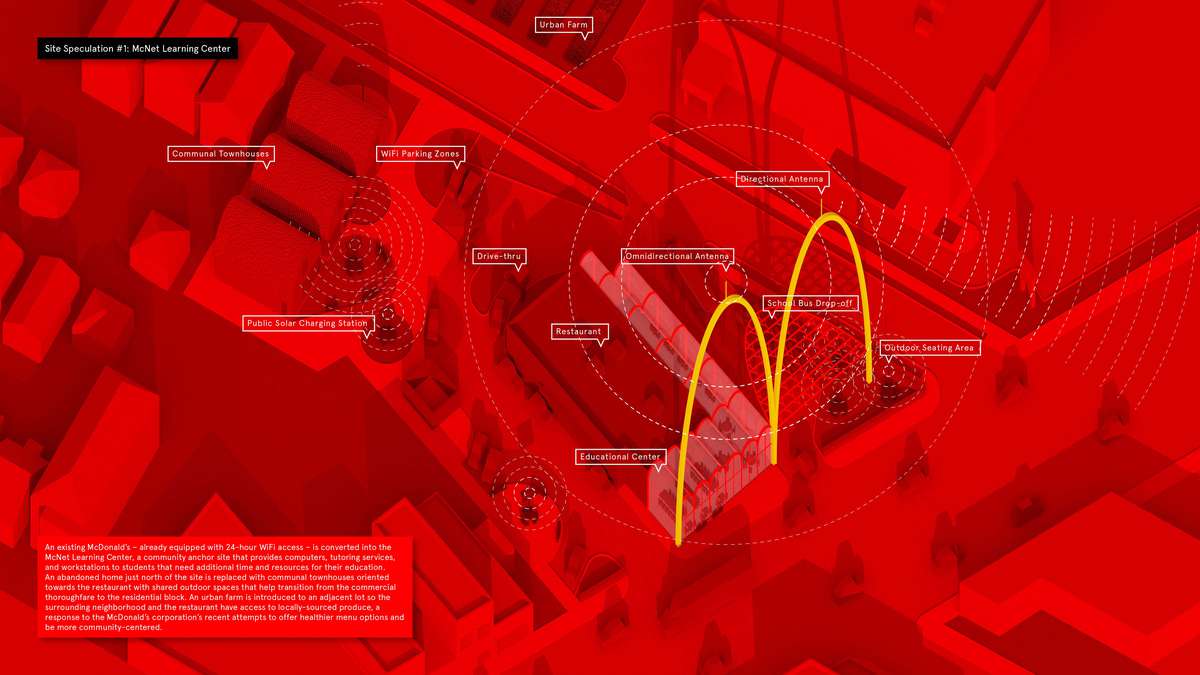
Site Speculation 1: Converting an existing McDonald’s into a community anchor site that provides computers, tutoring services, and workstations to students that need additional time and resources for their education.
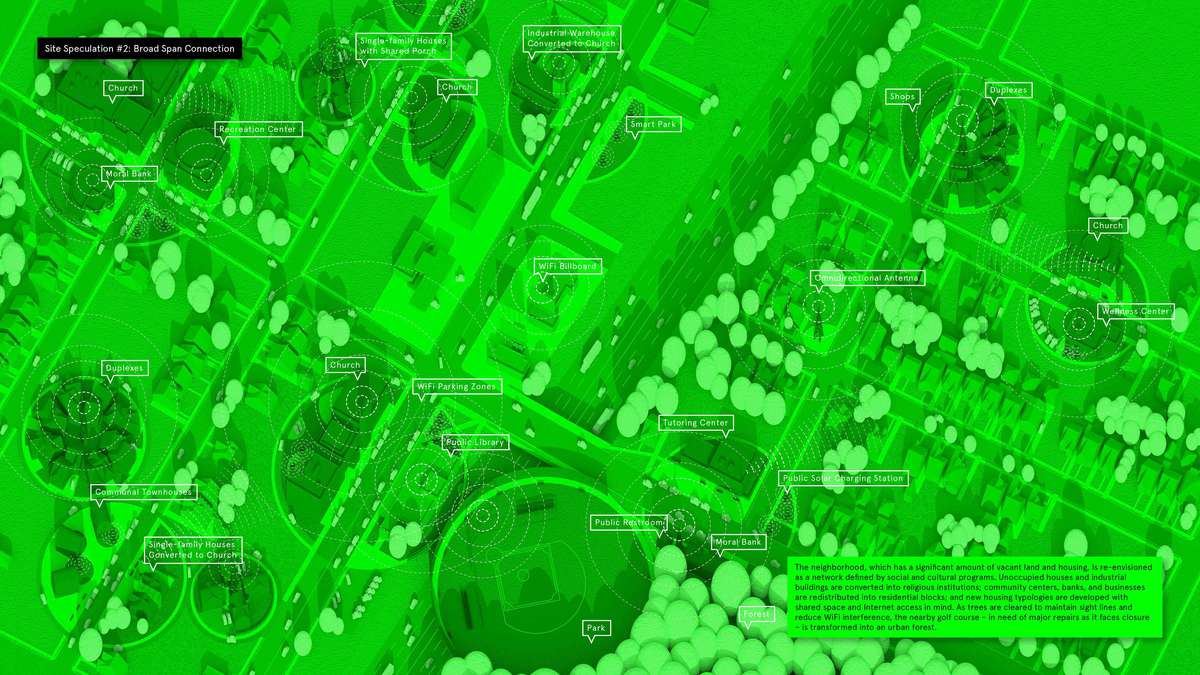
Site Speculation 2: An existing neighborhood is re-envisioned as a network defined by social and cultural programs.
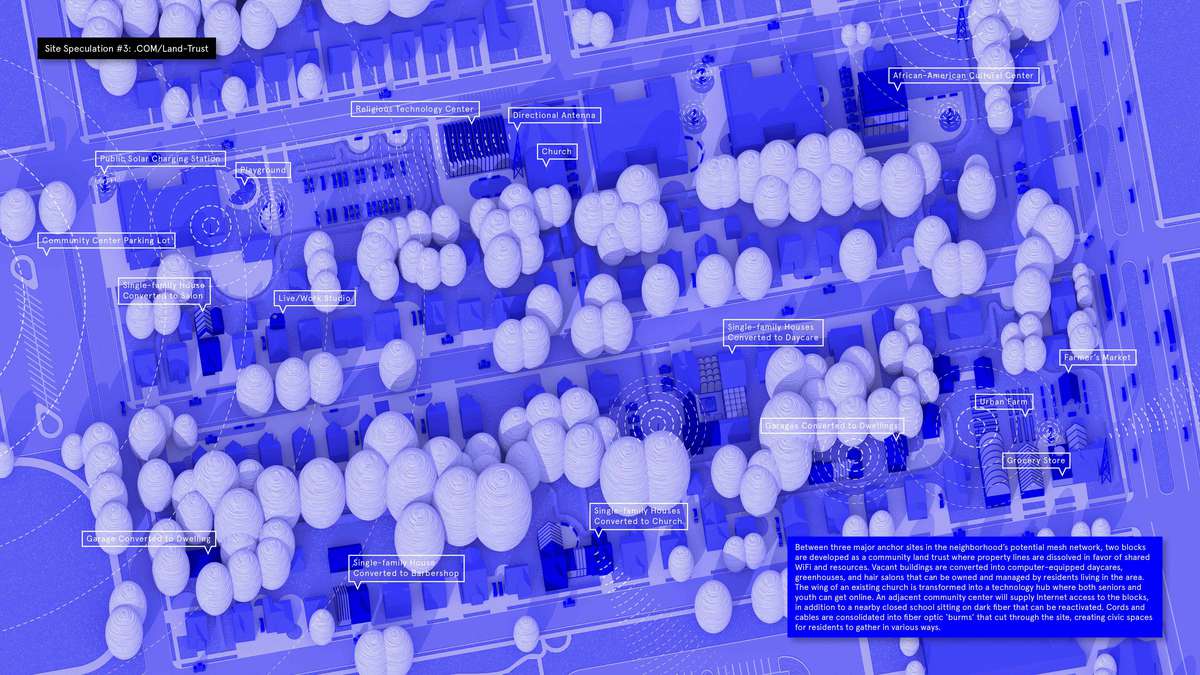
Site Speculation 3: Two existing blocks are developed as a community land trust where property lines are dissolved in favor of shared WiFi and resources.
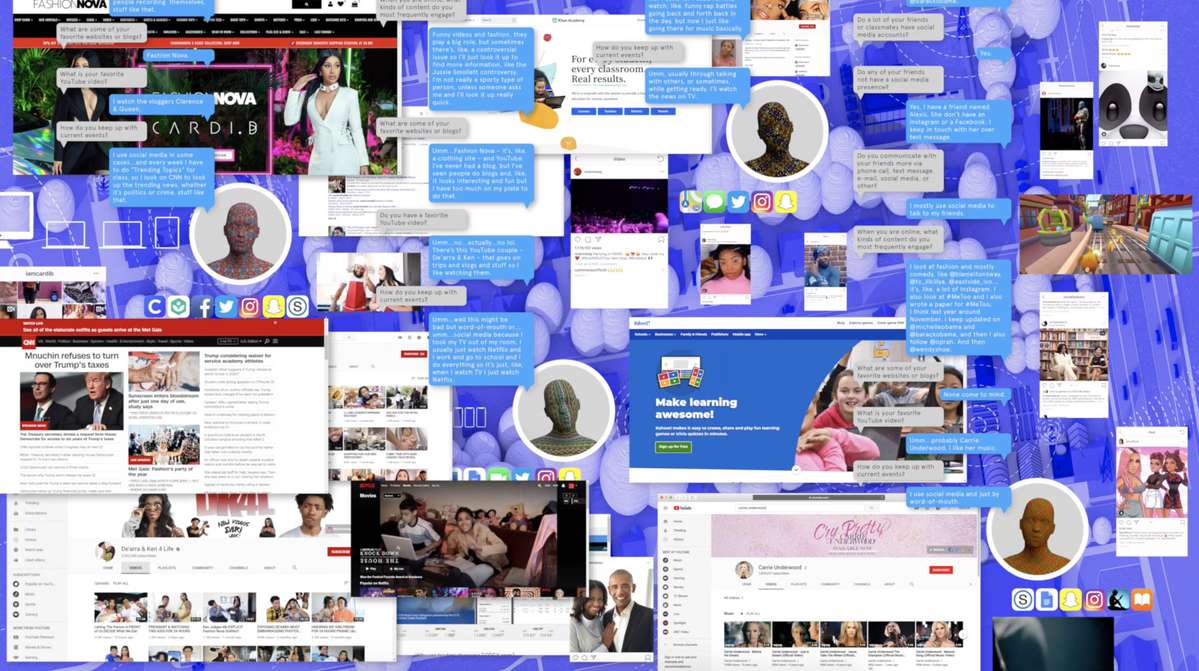
Screenshot of video showing conversations with Detroit high school students.
Online/On-site
Online/On-site

- Systemic changes
If cities of the future will increasingly be shaped by networked technologies, this mapping-based research and design project – set in Detroit, MI – explores how inequitable access to the Internet could yield alternate patterns of urban development. Detroit has the lowest rate of Internet connectivity in the United States, excluding thousands of people (especially school-aged youths) from the opportunities for education, employment, and belonging afforded to those with the ability to get online. Online/On-site combines publicly available spatial data with information gathered from interviews of local high school students in order to map detailed geographies of digital access and exclusion across Detroit. The project identifies latent opportunities to reimagine the city’s disinvested neighborhoods in ways that enable public assembly and digital interaction, proposing urban design scenarios that are rich with innovative ways to connect physically and virtually.
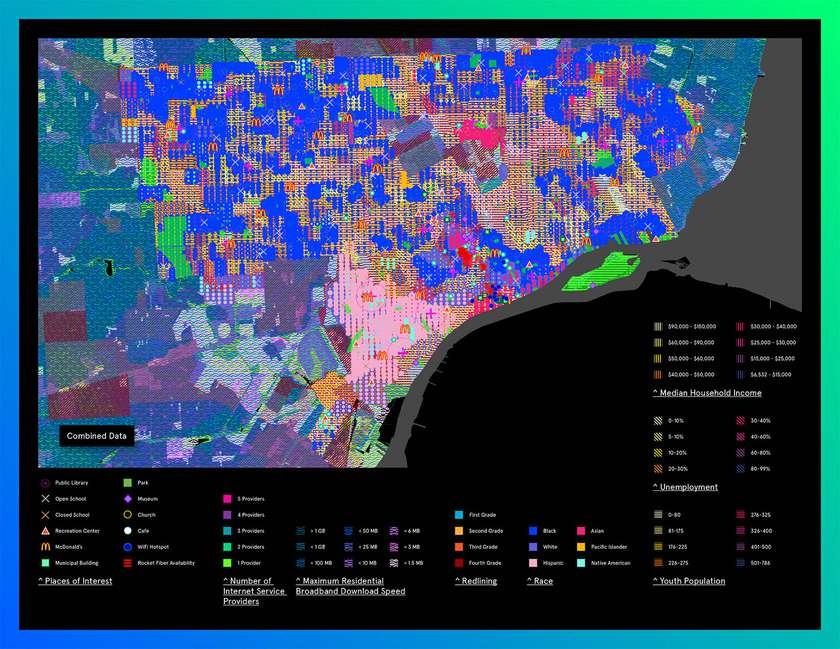
Composite map showing local resources, internet connectivity, and demographic data that could influence access to digital technology. From this research, three sites were chosen for design speculation.
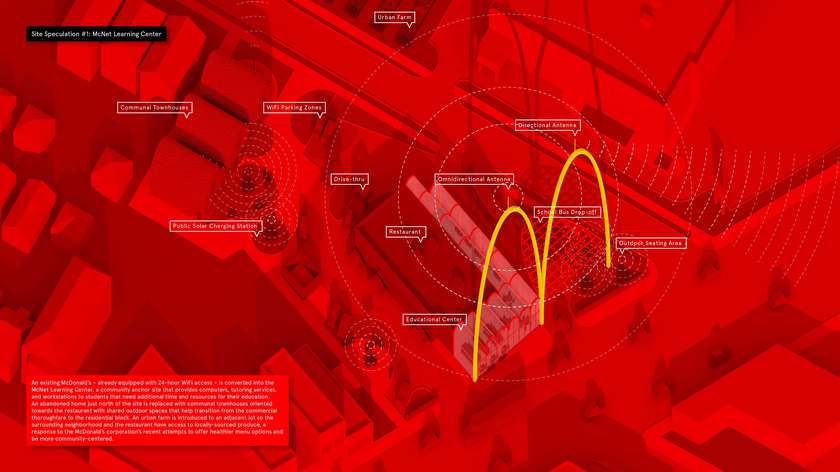
Site Speculation 1: Converting an existing McDonald’s into a community anchor site that provides computers, tutoring services, and workstations to students that need additional time and resources for their education.
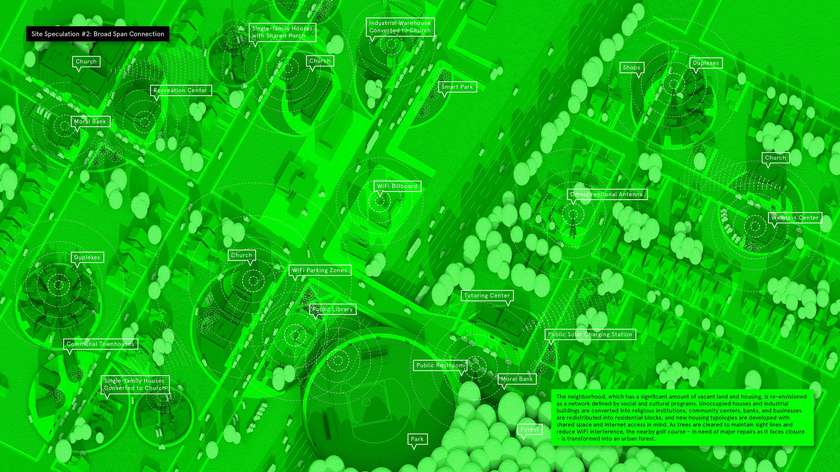
Site Speculation 2: An existing neighborhood is re-envisioned as a network defined by social and cultural programs.
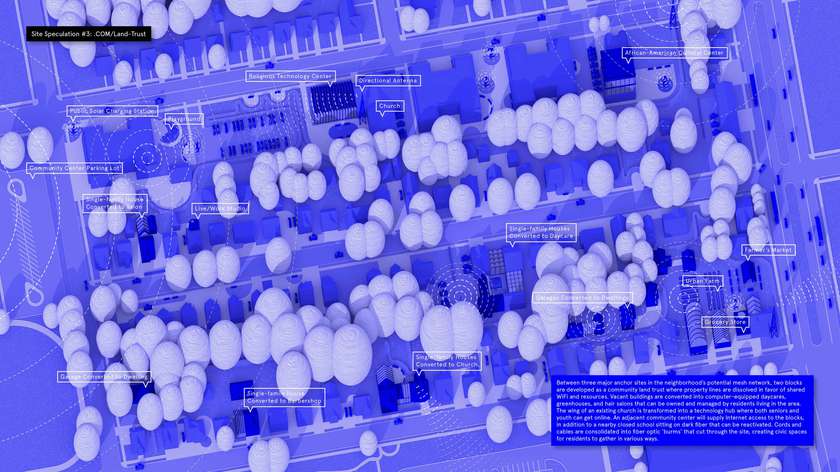
Site Speculation 3: Two existing blocks are developed as a community land trust where property lines are dissolved in favor of shared WiFi and resources.
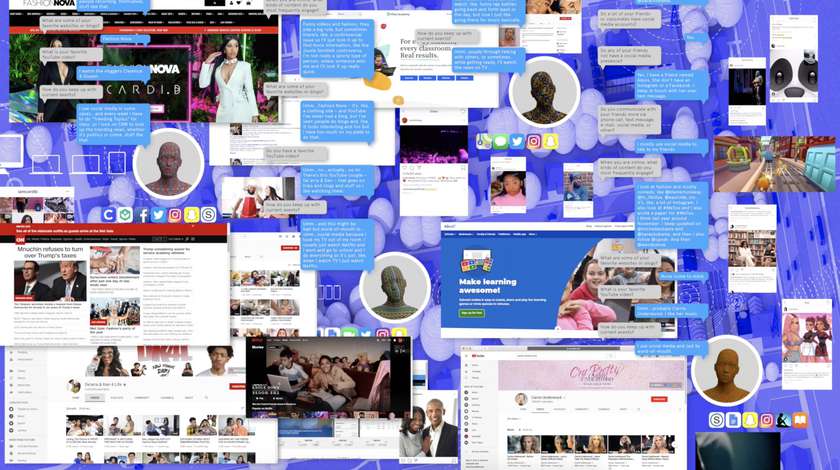
Screenshot of video showing conversations with Detroit high school students.